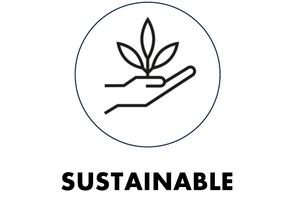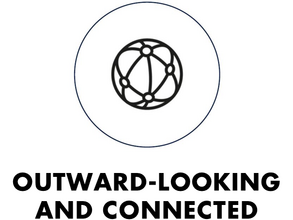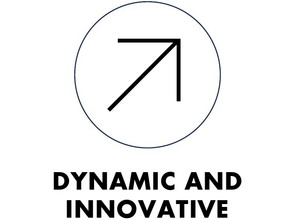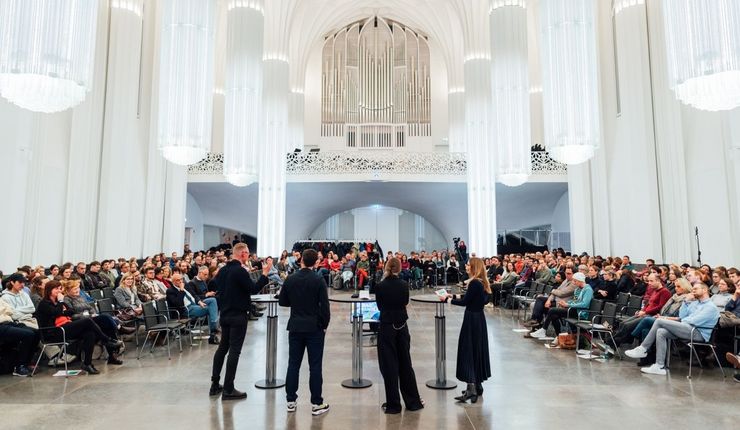Strategy of Leipzig University
Our Vision
With the vision of a “comprehensive university of the future – committed to excellence, acting sustainably, positioning itself as connected and outward-looking, acting dynamically and innovatively,” we are continuing the successful Leipzig Way.




We are committed to excellence
We are focusing on interdisciplinary research networks, incorporating them into the Excellence Strategy of the German federal and state governments and working towards the status of University of Excellence. We are optimising the conditions necessary for top-level research, education , and knowledge and technology transfer, and cultivating a broad concept of excellence that considers the diversity of subjects at our university. Further development in this area will take into account the following strategic objectives:
- Continuing to develop our cooperation strategy: making strategic use of complementarities
- Promoting several Clusters of Excellence
- Growing as a University of Excellence
- Making our research profile more dynamic
- Continuing to develop quality management in teaching and learning
- Implementing the Fourth Mission
- Updating the University’s mission statement
- Updating our mission statement for teaching
- Raising our profile as an attractive employer
- Continuing to develop research infrastructure
- Prioritising construction and renovation projects
- Making our equity strategy more dynamic
- Optimising resource allocation for strategic development planning
We are sustainable
On the basis of its sustainability strategy, Leipzig University is developing a culture of shared responsibility and forward-looking action. Our commitment to sustainability encompasses the dimensions of teaching and learning, research, and knowledge and technology transfer, the operation of our infrastructure and our integration into local society through mobility, supply chains and the circulation of knowledge.
- Implementing the sustainability strategy and creating an inclusive understanding of sustainability
We are outward-looking and connected
Our long tradition and deep convictions make us an outward-looking university with transregional links to all parts of the world. We aim to be well-connected and effective at all levels – local, regional, national, global – through our research, our range of degree programmes and our many and varied activities in the Third and Fourth Missions, and in particular to help shape the European Higher Education Area. We work closely and trustfully with our partners in all our areas of activity and performance markers, and provide a platform for international dialogue on the implications of current and future global challenges. The following strategic objectives will help the University to advance in this area:
- Continuing to develop the internationalisation strategy
- Implementing a coordinated development plan for Leipzig as a centre of science
- Continuing to develop the cooperation strategy for the Halle-Jena-Leipzig Central German University Alliance and the Central German science region
- Continuing to develop the cooperation strategy for German U15, the association of fifteen leading universities with a strong research tradition
- Continuing to develop the cooperation strategy for the Center for the Transformation of Chemistry (CTC) as a major research centre
We are dynamic and innovative
We recognise that the unity of research, teaching, and knowledge and technology transfer is fundamental to our university’s development along the stages of the Leipzig Way . When developing innovative degree programmes, we incorporate the results of excellent research. We use highly effective instruments to support researchers in setting up collaborative research initiatives. We support the development of researchers in the early stages of their careers. We motivate members of the University community to engage in knowledge and technology transfer activities.
Our strategic development goals also focus on a modern organisational and operational structure and the University’s digital transformation:
- Implementing the Leipzig Way for the Research performance marker – reviewing funding structures
- Implementing the Leipzig Way for the Knowledge and Technology Transfer performance marker – continuing to develop the transfer strategy and structural bundling of transfer activities
- Implementing the Leipzig Way for the Teaching performance marker – rolling out research-oriented teaching
- Supporting researchers in the early stages of their careers
- Making the matrix landscape of faculties and centres more dynamic
- Implementing a modern organisational and operational structure – enterprise resource planning (ERP) and control
- Implementing the University’s digital transformation

Vision and Strategy
As part of our strategy process, we have formulated a concise vision to help us achieve our goals. Various University stakeholders were invited to work together to create an informed and sustainable pathway for our comprehensive university of the future.































































